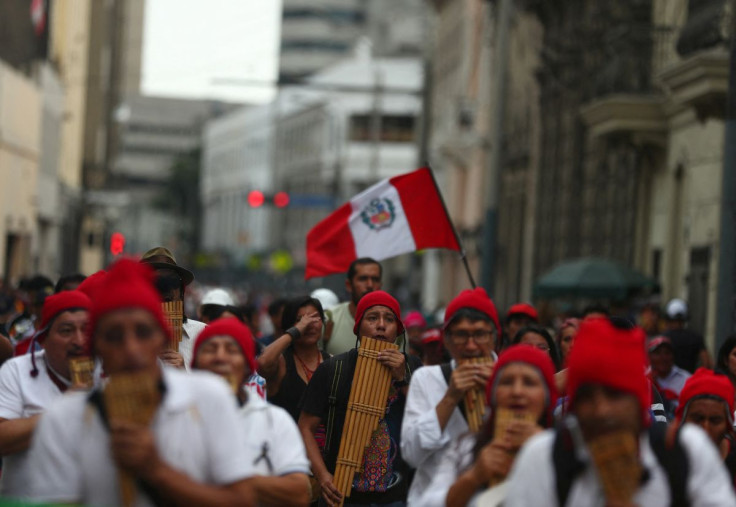A two-month-old revolt against Peru President Dina Boluarte has claimed nearly 50 lives in clashes between protesters and security forces. To deal with it, the government of Peru on Sunday prolonged and expanded a state of emergency.
According to Telesur, the government declared a state of emergency in Puno, Madre de Dios, Apurimac, Arequipa, Moquegua, Cusco and Tacna for 60 days. This is due to the social and political crisis that has been going on since Dec. 7, 2022, in the South American country.
Last month, the government extended by 30 days a state of emergency for Cusco, Lima, Puno and El Callao. The new extension does not cover the capital Lima, nor El Callao, which hosts Peru's main airport and maritime terminals. The state of emergency will expire in mid-February.
The measure authorizes military troops to back up police actions to ensure there is public order. It also means suspension of constitutional rights like freedom of movement and assembly. The decree provides for an 8:00 p.m. to 4:00 a.m. curfew for at least 10 days in the department of Puno. It is the epicenter of the anti-government demonstrations, where 18 civilians and a cops died in clashes on Jan. 9.
A political crisis hit Peru in December when then-president Pedro Castillo was arrested after he tried to dissolve Congress and rule the nation by decree. Protesters erected roadblocks that have caused shortages of food, fuel and other basic commodities in many areas of the Andean nation. Protesters want the dissolution of Congress, a new constitution, and Boluarte's resignation. Many attempts were made to pass a bill through Peru’s legislature to allow early elections, but have failed. The latest attempt was made on Friday.
Then on Saturday, violent street protests took place in central Lima. The protests are held by poor southern, Indigenous Peruvians who see Castillo, who has humble origins and Indigenous roots, as an ally in their fight against poverty, inequality and racism.
Meanwhile, on Jan. 30, Amnesty International announced that it had deployed a specialized crisis response team to probe human rights violations and possible crimes committed in the context of the wave of protests in Peru. Erika Guevara-Rosas, Americas director at Amnesty International, said that given the seriousness of the allegations of human rights violations they were getting, they sent their "specialized continental crisis response team" to Peru.

© 2025 Latin Times. All rights reserved. Do not reproduce without permission.





